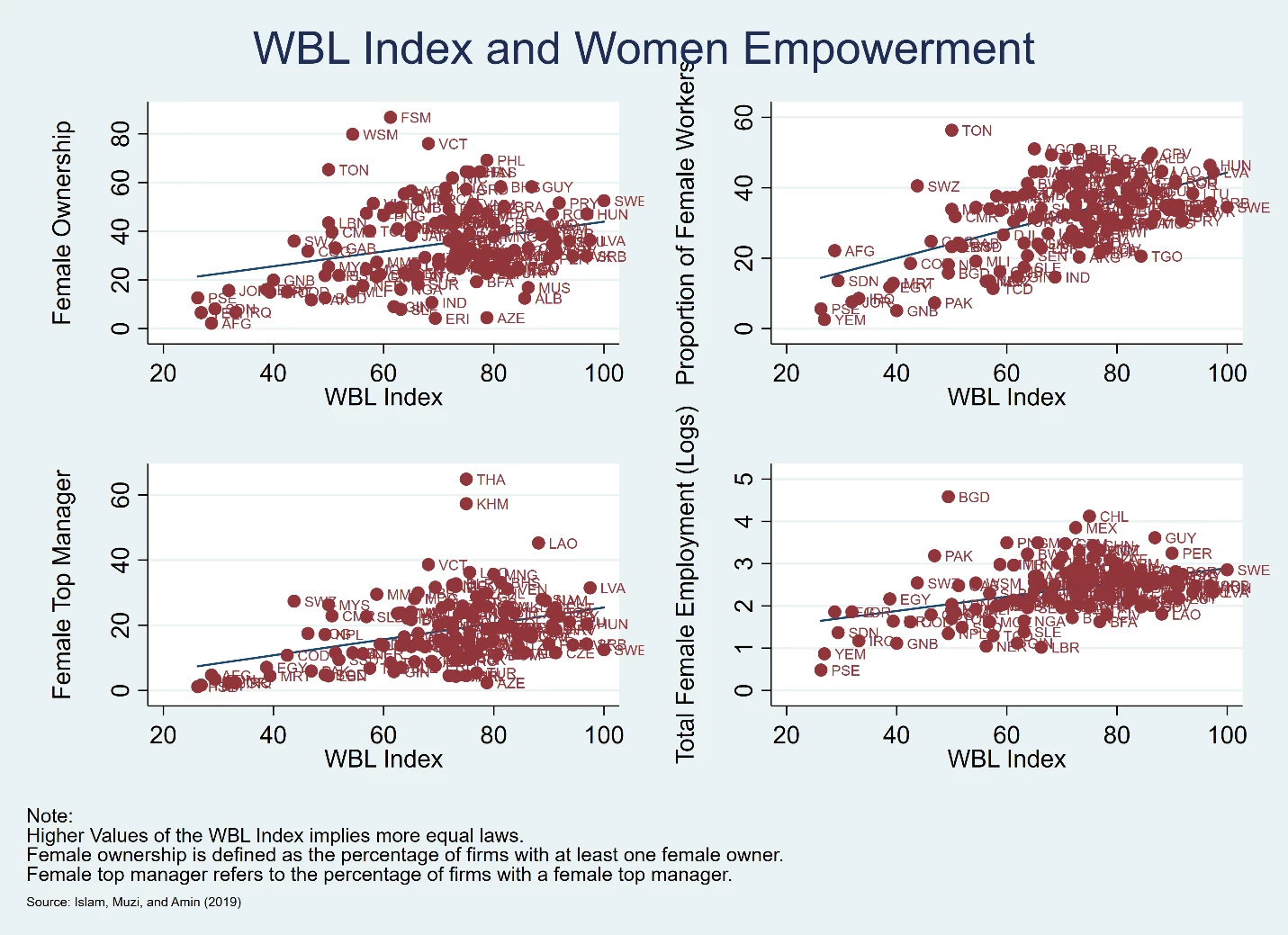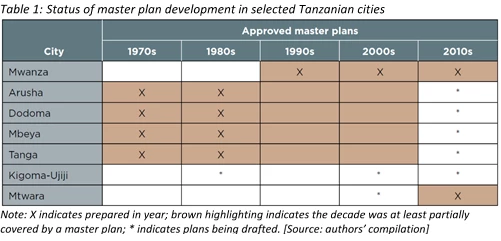Unequal laws that treat women and men differently lead to unequal outcomes. This is a premise that does not need much suspension of disbelief. Such disparities in laws by gender, well documented by the Women, Business and the Law project, entail circumstances where women cannot obtain documents, such as national ID or passports, the same way as men. In some situations, women cannot register a business, sign a contract, or even open a bank account in the same way as men. Such legal gender disparities are likely to filter into several facets of women’s lives, including their engagement in labor market-related interactions.
Despite the compelling narrative, empirical evidence based on rigorous analysis has not kept pace and has been in relatively short supply. This is not entirely by accident. Uncovering a causal relationship between legal gender disparities and inequality in labor market participation or in labor market outcomes is fraught with confounding factors. Changes in laws are seldom truly random. Laws tend to have historical roots and are embedded in societies where changes in laws involve a demanding process. While it is possible to explore an unexpected change in a single law as a natural experiment, this would lose sight of both the systematic nature of discrimination that would encompass a host of laws and also discounts the global importance of the problem which is more attuned to the interests of international institutions.
In a recently published study, we wade into these waters by exploring robust correlations between unequal laws and several aspects of women’s engagement in the labor market by combining two rich data sources. Our first data source is the country-level data on unequal laws from the Women, Business and the Law. The data is compiled through consultations with over 1,000 lawyers, judges, civil society representatives and public officials in 190 economies. The second dataset source is firm-level micro data obtained from the World Bank’s Enterprise Surveys. These data consist of nationally representative samples of formal firms with 5 employees or more largely from manufacturing and services sectors. The surveys are conducted through face-to-face interviews. By combining both datasets, the resulting sample consists of 59,000 firms across 94 economies. We correlate unequal laws with a number of firm-level gender-specific outcomes including the proportion of full-time female workers as well as the presence of women in top managerial positions and firm ownership, good proxies for women’s empowerment.
We find that the higher the number of equal laws in an economy, the more likely a firm is to have a woman as a top manager, to have women’s participation in ownership or have a majority of women owners, and to employ women. Our findings stand after accounting for development, religion, fertility rates and several firm characteristics such as sector, size, age, exporter status and so on. We present simple country-level correlations in figure 1 below displaying the nature of the relationships.
Figure 1
Our study shows that if a country such as Yemen, which had the most unequal laws in our sample at the time of the study, were to emulate Slovakia, which had the most equal laws, the associated increase in the likelihood of having a female top manager would be 11.7 percentage points, the increase in the likelihood of having a female owner would be 19.5 percentage points, and the increase in the likelihood of having women majority owners would be 7.8 percentage points. These are considerable results given that only 17 percent of firms in the sample have a female top manager, 33 percent of firms have at least one female owner, and only 12 percent of firms are majority female-owned.
What are the pathways through which unequal laws discourage women from participating in economic activity and hinder women’s empowerment? As shown in the table below our findings indicate that equality of laws that regulate running businesses, mobility (going places), and managing assets are associated with the higher probability of female ownership of firms. Specific laws in running a business include whether a woman can register a business in the same way as a man and if discrimination by creditors based on gender is prohibited. Laws providing equality when starting a job or targeting occupational segregation (getting paid) are associated with greater female entrepreneurship, i.e. female managers.
Table 1
The policy implications of our study are that promoting reforms in laws and regulations that hold women back from working and doing business are key to improving their participation in the labor market or in empowering positions. From a research point of view, we see this study as a first step in exploring systematic discriminatory laws and gender-related outcomes in the labor market, in general, and in the private sector, in particular. There are several avenues that can be explored using the two World Bank generated datasets – the Enterprise Surveys and Women Business and the Law. We welcome more research in this area.






Join the Conversation